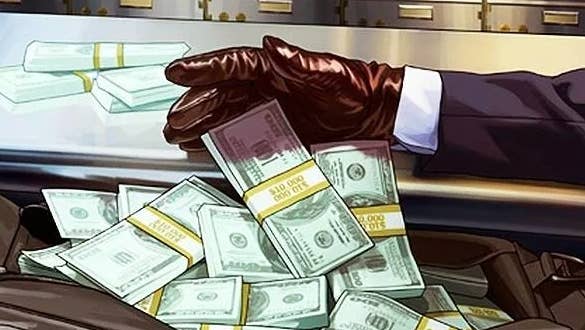How are investors feeling about video games today?
“Investors certainly do not see video games as recession proof”
Sign up for the GI Daily here to get the biggest news straight to your inbox
Over the last five years, the digital pages of GamesIndustry.biz have been awash with stories of games studios being set-up, floated, expanded significantly, and getting bought.
The level of investment in the games industry has been incredible, and only accelerated during the pandemic, leading to three multi-billion-dollar acquisition announcements in January 2022.
But today the games market is in a tricky spot. The post-pandemic lull, combined with deep economic uncertainty caused by rising energy costs (plus other challenges), have seen games giants announce lower-than-expected results. Sales of games, at least for some, have declined. Mobile revenue is stagnating. And costs are rising.
So what does that mean for all those investors who had been so eager to inject huge sums of money into the sector?
"The investment landscape has been wild," says Spike Laurie, partner at games VC fund Hiro Capital.
"It is still the second-best time ever to set-up a games studio and do games"
Spike Laurie, Hiro Capital
"The last two years has been the golden time for founders. If you have a PowerPoint presentation, and you're making a blockchain or metaverse game, you'll get $5 million, a $25 million valuation, and nobody asks any questions. And it's created a monster. The money people are asking for and the valuations... it's been bananas."
He continues: "Everybody who had seen [the success of] Unity and Supercell thought 'games, it's the place to invest'. You just had all this money looking for game studios. So anyone who ever worked at Riot or Blizzard or King, in any kind of role... they would go 'I have an idea for a game, I need $5 million'. And then [investors] were like 'okay, we'll back it'.
"As a result, deals started cropping up and bad companies were being formed. People don't do due diligence anymore. You saw what happened with [crypto currency business] FTX and the fact people weren't doing basic due diligence on the business and lost a lot of money. That created this landscape."
Laurie sounds critical, but he is torn over whether the situation was a good or bad thing.
"I don't know," he said. "Is it bad that anyone who is entrepreneurial and wanted to set up a business could do so?"

The situation has now changed, however. Nick Gibson, director at Games Investor Consulting, says a combination of tough comparisons with the lockdown years, issues with hardware supply, the changes Apple made to App Tracking Transparency [the ability to track players across apps] and the overall macroeconomic headwinds, have given investors, particularly those who are not games specialists, a reason to pause.
"There's a greater level of risk awareness if not risk aversion when it comes to games funding in 2022 and 2023," Gibson begins.
"There was a flood of investor interest in games for most of the last five years, which resulted in valuations skyrocketing and in turn bolstered M&A and IPO activity. These positive exits simply attracted more investors and so the cycle continued."
The challenges since have reduced the 'frothiness' in games valuations, Gibson says. "But it has sparked a stronger focus on fundamentals – financials, people, IP and technology – no bad thing if you ask me."
Indeed, Laurie argues that the companies who are struggling the most in the current investment landscape are often the ones that weren't set up in the best way.
"What has really happened is all these investors piling into games, doing stupid deals with stupid valuations on stupid projects around Roblox and Metaverse and Blockchain, have stopped. And now these games companies have run out of money because they were spending $350,000 a year on a Rust developer working three days a week. Their burn was super high so now they need to go out and find more money. But the way capital works is, your paper valuations must go up. Because you're telling your [limited partners] what their portfolio is worth, and you don't want that to go down, because if it goes down they stop putting money into your venture capital fund."
"It's nobody's fault because it was such a good time to be a founder. But the smart ones still have 18 months of runway, and are running their business like a business. And the silly ones thought after Series A [funding round], the B and C would come straight after, and there would just be more free money."
Laurie says some games companies are having to do 'flat rounds' (a round of financing which ends with the company having the same valuation as the prior round), or more structured rounds. And that brave investors are doing 'down rounds' (where the post-round valuations are lower).
"Companies got a little ahead of their skis, and rightly so, because the general macro-economic market was so good. But those companies are finding it difficult. They need to be a bit more structured; they're having to do more down rounds and re-setting their expectations for what the normal is."
"[The situation] has sparked a stronger focus on fundamentals – financials, people, IP and technology – no bad thing if you ask me"
Nick Gibson, Games Investor Consulting
But it's not all bad news. In fact, Laurie says there are still plenty of investors eager to back games studios.
"It is actually a great time for investors to invest," he argues. "Acquirers are less acquisitive because a lot of them are public companies and their share price has come down, and they therefore can't acquire so easily. That knocks onto the advisory business, who were helping to sell Company X to Embracer or Company Y to Playtika.
"It is a really interesting time to be in venture and to be in games, because the music has kind of stopped. Or it has at least slowed down.
"But… yes, the last two years were the best time ever to be a founder in games. No doubt about it. But now? It is the second-best time. It is still the second-best time ever to set up a games studio and do games. That's a great place to be."
We were talking to Gibson and Laurie around the private funding sector, but it's all part of the broader finance ecosystem, which considers share prices, the opportunities for companies to float, as well as the non-specialist investment sector.
And there are clear challenges here, too. Companies aren't floating, and share prices – in a lot of cases – have fallen. The situation has been particularly acute with UK public companies, such as Frontier, Devolver and TinyBuild.
"With the macro backdrop, and just looking into the next 12 months with consumers having a little less to spend, investors are just looking at that and saying: 'It's probably not going to be an industry that will see a significant re-rating in the next 12 months'," begins Patrick O'Donnell, senior equity analyst and games specialist at stockbroking firm Goodbody.
"So they're watching their level of exposure. Some of the guys who are traditionally Top Ten investors in the UK games sector are not putting additional cash into it at the moment. And that's on the basis that they see more pain to come in terms of consumer behaviour."
O'Donnell says that investors in public businesses have similar concerns to private investors.
"There is this general uncertainty factor of what the macro environment will end up doing to [consumer] spend. And then there is mobile and the headwinds that are there. China has been an ongoing concern for a while. Plus, the regulatory background with things like loot boxes. It's not a core investor concern, but they're coming up more and more. You're seeing Supercell self-regulate [loot boxes] when it comes to their more recent IPs.
"Some of the traditional Top Ten investors in the UK, are not putting additional cash into games at the moment"
Patrick O'Donnell, Goodbody
"Investors certainly don't see the sector as recession proof. And they're probably factoring in the downgrades we've seen from EA, Microsoft."
The UK sector saw a series of downgrades from public companies in January. The results from Devolver, Frontier and TinyBuild have damaged investor sentiment in the UK.
"Then there's mobile," he continues. "Our best hope is it will be a flat year, and when you think what that will mean for overall market growth... we are probably seeing a very low level of growth for the next couple of years, until there are more efficiencies around user acquisition and things like that. There is either pull back on UA spend, or they're trying different ways to engage the user. But you can't say there has been no impact of Apple's [tracking changes].
"My view is that the sector is in a good place, but investors don't want the uncertainty right now."
Part of the challenge has been the UK sector trading at a premium.
"There are companies like Team17 that have consistently under-promised and over-delivered," O'Donnell explains. "And we had Frontier guiding the market at 20% topline, which was based on F1 Manager... which we saw as a pretty mediocre IP, to be honest. Then you had Devolver who [floated] relatively recently, and are being held to IPO expectations… there is a definite release of capital out of names from Devolver and Frontier, which have, quite honestly, gone into the uninvestable bucket.
"But the UK is now priced in with conservative expectations. The numbers are all really beatable with some limited momentum. I think the worst is behind us in terms of missing against consensus, and that sets us up for earnings momentum over the next few years."
O'Donnell says that the number of downgrades has certainly dampened investor expectations and confidence. But not for everyone. And the overall outlook for the industry remains positive.
"It is a global, growing industry," he concludes. "There are consoles that are only starting to properly widen availability in terms of PS5, which I think will only be a good thing for new releases on console. Subscription could be a positive, with new entrants coming in. You could see quite a competitive market there in a few years.
"It's not all doom and gloom, because there is a huge, long-term growth plan here. And you just have to look at where this industry has gone over the last ten years. But investors can be short-term minded, and you have to point to events over the coming months to encourage them to rotate back in."
Sign up for the GI Daily here to get the biggest news straight to your inbox

